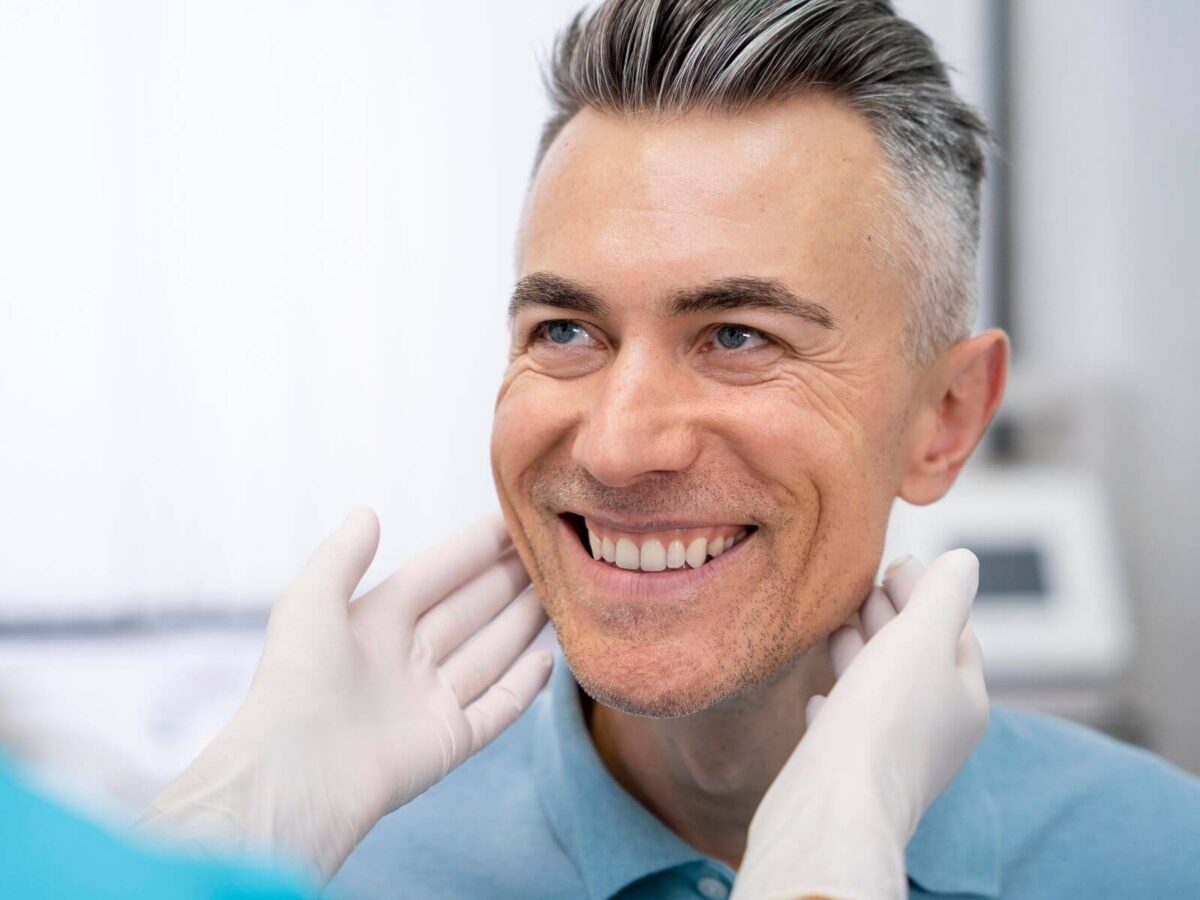A smile is one of the precious possessions that extends light, confidence, and character to the outer world. However, natural causes like tooth decay, an accident, or even general wear and tear can decrease the aesthetic appeal of the teeth in the long run.
Luckily, today’s dentistry has answers to this issue, and dental crowns and bridges are among the most effective ones. With crowns and bridges, it will be interesting to learn how dental restorations can bring a new look to your teeth and thus enable you to get a smile that is as good as new.
Along this line of treatment, dental crowns and bridges are more appealing because they can fit in your mouth and look like natural teeth. Today, we can make crowns and bridges out of ceramic, resin, or porcelain that perfectly mimic your teeth’ shade, form, and surface, providing you with a highly aesthetic outcome.
However, dental crowns and bridges are not only aesthetic solutions. They are functional restorations for eroded or missing teeth. When you have missing or damaged teeth, dental crowns and bridges can enhance your dental health, biting and talking, and prevent additional dental problems later on.
What are the Dental Crowns and Dental Bridges?
Dental Crowns: These caps are made in the form of teeth and are fitted to blend with the structure of the natural teeth to add strength in cases where other operations have weakened the teeth or developed additional protection to prevent heavy damage. Primarily made from porcelain or ceramic, dental crowns have to blend with your existing teeth’ color and form seamlessly.
Dental Bridges: Unlike crowns, bridges fill the gap arising from one or more missing teeth. These include two anchoring teeth on both ends of the bridgework where some teeth or teeth in the middle are missing. Dental bridges can be made from porcelain, ceramics, and various metal alloys, depending on the patient’s needs.
The Benefits Of Crowns And Bridges
Restored Functionality:
Crowns and bridges are most suitable for restoring broken or fallen working teeth. Since crown and bridge work occurs after shaping the visible portion of the tooth, patients who have these can chew, bite, and speak without discomfort; thus, they can have their full meal and obtain balanced nutrition.
Improved Aesthetics:
Dental crowns and dental bridges are crafted to accommodate the color and texture of the adjacent teeth, making them a cosmetic plus of the procedure. Whether restoring a single tooth using a dental crown or replacing multiple teeth using a bridge, such restorations have excellent aesthetics, which can improve self-esteem.
Preservation of Tooth Structure:
On weakened teeth, crowns offer support to the affected tooth by enveloping it in a casing that does not allow further degeneration. On the other hand, bridges close the space caused by missing teeth and help other teeth not to shift to some other positions to cause disparity with other teeth.
How do Dental Crowns or Dental Bridges Work?
Dental crowns and bridges perform functionality and esthetic roles for damaged or missing teeth.
- Crowns: These are bonded onto the decayed teeth, giving them support and protection from other damages. Ideally shaped to snap into place tightly, crowns are cemented in firmly.
- Bridges: Located between the two adjacent teeth, which are missing, bridges fill up the space like a bridge. Above the implant or the root, dental crowns on both sides then remain anchored and serve as important anchors as well as aesthetic replacements.
Dental Crowns And Bridges – Process
- Restoring your bright and healthy-looking smile starts with a consultation with our dentist, who shall determine your eligibility for the treatment. Where crowns or bridges are advised, the next steps are taken to prepare the tooth that is affected and smoothen the latter to support the restoration.
- The dentist then makes molds of your teeth to manufacture crowns or bridges that will perfectly fit your mouth. If you need denture prosthetics that are made in the dental lab, you may need temporary crowns or bridges in the meantime to protect your teeth and minimize chewing discomfort.
- After your permanent crowns or bridges are made, they will be cemented or bonded to your teeth to give you fully functional cosmetic restorations. If taken care of and properly maintained, these dental bridges and crowns can last many good years, giving you the smile you want and deserve.
How To Look After Your Crowns And Bridges?
Removable retainers help keep your teeth properly aligned after crown and bridge treatment. If you wear your retainer as expected, you will stop your teeth from moving and affecting the treatment outcome.
It’s also important to practice good oral hygiene, such as:
- Using fluoride toothpaste when you are brushing your teeth at least twice a day
- Using a toothbrush and floss to clean between teeth every day
- Choosing a mouthwash to dissolve bacteria
- Calling your dentist to schedule regular check-ups and prophylactic care
Which is Right for You?
Although both crowns and bridges are fixed dental prostheses, crowns sit directly on the affected tooth, and bridges work like gap fillers. Crowns are usually used to fix damaged teeth that require a large filling, are cracked, or have chipped, while bridges are used to fill the spaces between one or more missing teeth. Both treatments will undoubtedly enhance your smile; however, depending on your dental condition, you must determine which is right.
Finishing It Up
Having a healthy mouth means having a beautiful mouth! Let us help you get the smile of your dreams through dental crowns and bridges. We at Cypress Dental can establish and recommend a plan to suit your needs or expectations and address your condition.





